Smartphone batteries don’t last forever and need replacing a few years down the line. While modern smartphone batteries are built to retain most of their charge even after 500 charge cycles, many other factors like heat contribute to the rapid degradation, and the same happened to my Pixel 6. Waking up to a puffed-up device with its display lifted off is a punch to the gut, especially if you took extreme care of the device to keep it in a near-mint condition. In this read, I’ll tell you how I replaced my Pixel 6 battery and help you decide whether you should do it too.
The Main Problem: Sourcing a Battery
While it’s typically effortless to source a battery, unfortunately, the Pixel 6 never launched in India. I bought it from a seller who imported it from Japan. After hitting the bustling streets of Hyderabad and visiting countless phone repair stores, I got extremely lucky with one parts seller.
The shop had recently refurbished a battery from what they claimed was a new but now shattered Pixel 6. At this point, I couldn’t care less if the battery was new or old because the Android 15 beta testing was underway, and I had to test out all the features.
If anything, this served as a lesson that it’s better to avoid devices, that don’t officially launch in your country (which is true for some Google Pixels). Google had been doing free Pixel 6 replacements for units with swollen batteries in the US and Canada, but there was no way I could claim this out-of-warranty service in India.
The battery came at around $15 which was surprisingly cheap, too good to be true, in fact, so I had my reservations about it being genuine. The lack of official parts sellers like iFixit in India is a bummer. The Americas and Europe are truly blessed in this regard. Let’s now move to the actual battery replacement part.
Replacing the Battery Was A Piece of Cake
Now, this happened a few weeks after I had replaced the battery of my sister’s old iPhone XS Max, hence I was feeling fairly confident about smartphone repairs. A spicy pillow was new for me, but I have seen enough of Hugh Jefferey’s, PhoneRepairGuru, and Salem Techspert’s videos on YouTube that nothing could stop me from replacing it myself.
Unlike Samsung and OnePlus phones that open up from the back first, Pixels open up from the front. Thanks to the battery already forcing the display to lift away, I made quick work of the adhesive using a few drops of Isopropyl Alcohol and a spudger, albeit cautiously, to not touch the battery and trigger a reaction.
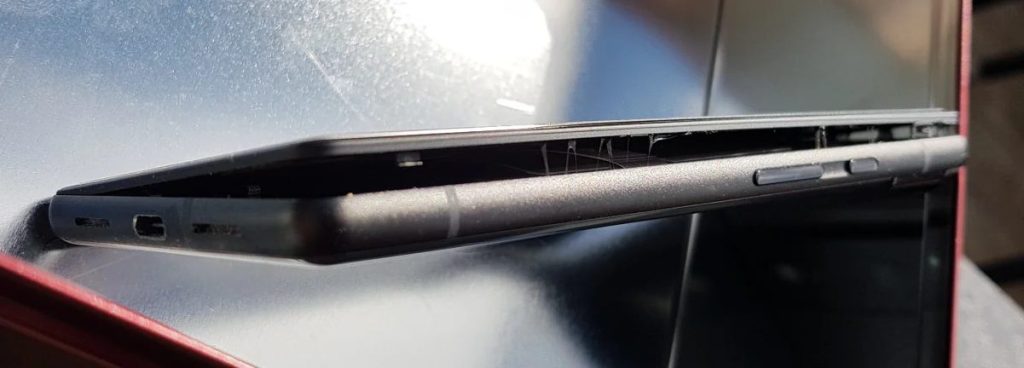
Once inside the device, I unclipped and removed the bracket above the display connector. Then I removed the heat shield alongside lots of graphene tape to finally access the battery connector and disconnect it. I then shifted my focus to the battery pull tabs that aid in removing the battery.
I was quite hesitant to touch any part of the battery at this point, but the bulge was not as bad, so I mustered the strength to cut through the adhesive using the pulling strips. When it comes to the battery pull tabs, Google’s implementation is better than Apple’s. That’s because you don’t need to remove things such as the Taptic Engine and speaker to access the pull tabs, which are not even that strong and snap halfway.
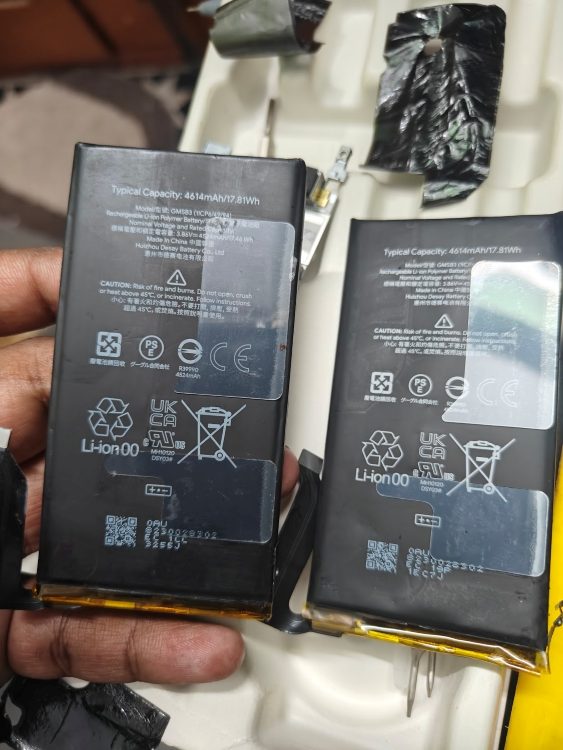
I slowly tried cutting the adhesive, but it was a bit too strong at one point. Nothing a few drops of Isopropyl Alcohol can’t melt, though, and it was finally out. It was clear that the battery had just started swelling. I safely disposed of it and connected the new battery. It was about time I replaced the Pixel 6 battery.
Another commendable thing about Pixel’s or most Android phone’s internals is that the screws used to fix components in one place are all either Torx or Philips heads. iPhones, on the other hand, use multiple screw types, which makes it extremely hard to keep track of which one goes where.
The End Result Was Satisfying
As cliché as this may sound, there’s nothing more satisfying than repairing a broken product and restoring its functionality. The moment Pixel 6 booted was bliss, a tiny achievement, but definitely something to be happy about. A new battery means the phone is good to go for another two years at least. More importantly, it’s the proud feeling of saving a device from ending up in landfills, polluting the Earth.
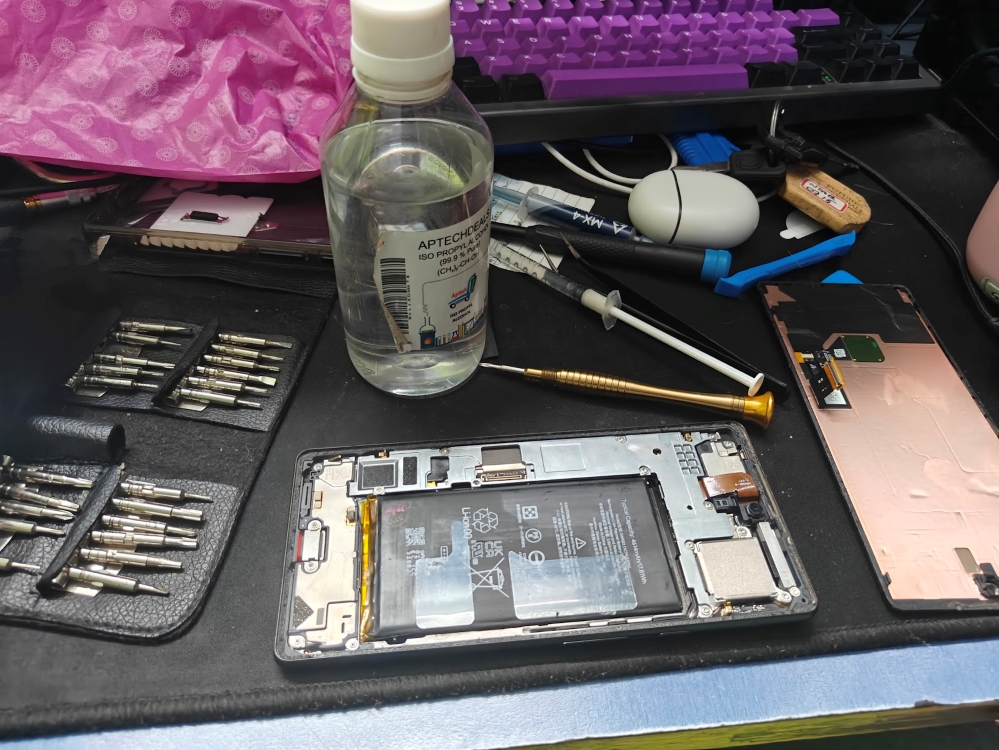
To my surprise, thanks to the new Diagnostics features that were added to Pixels last year, I could see the battery had just over 200 charge cycles and was at 100% health. AccuBattery showed 94% after two full cycles, which is fantastic considering I got the battery for a steal. I’m aware AccuBattery usually takes more charges to calculate the average battery health, but this is still a huge win.
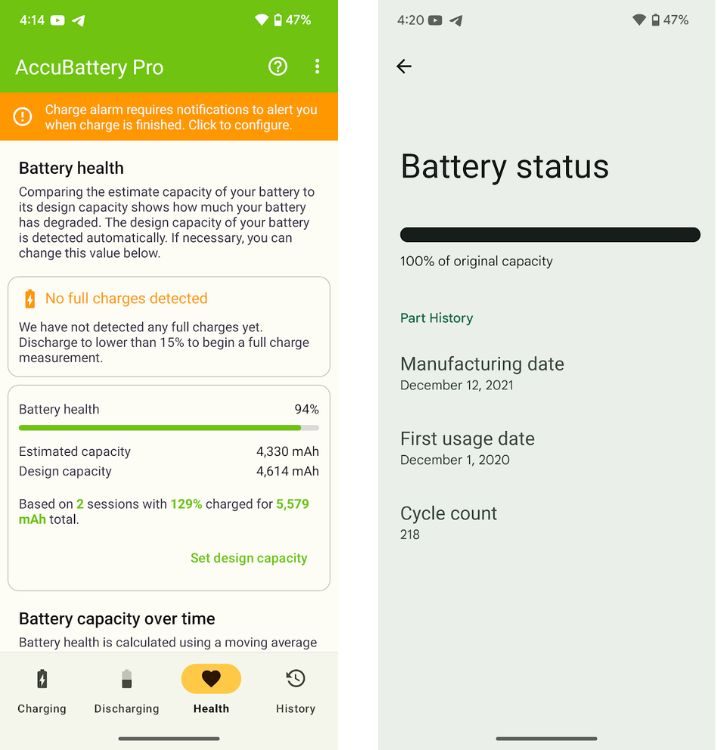
My Pixel 6 now feels much snappier, which makes sense considering the old battery wasn’t able to provide as much power because of losing its ability to retain its full charge. It could be a placebo effect, though. But the overall battery life has significantly increased, and the standby drain is negligible now.
Should You Replace the Battery on Your Own?
Pixels are quite decent when it comes to repairability. But the process of replacing a battery differs from manufacturer to manufacturer. The hard part will always be getting the back panel or display out without damaging it. So, you need to take extra precautions as the display is the most expensive part of a smartphone. Besides, firms are notorious for gluing the batteries, and a lot can go wrong when removing them.
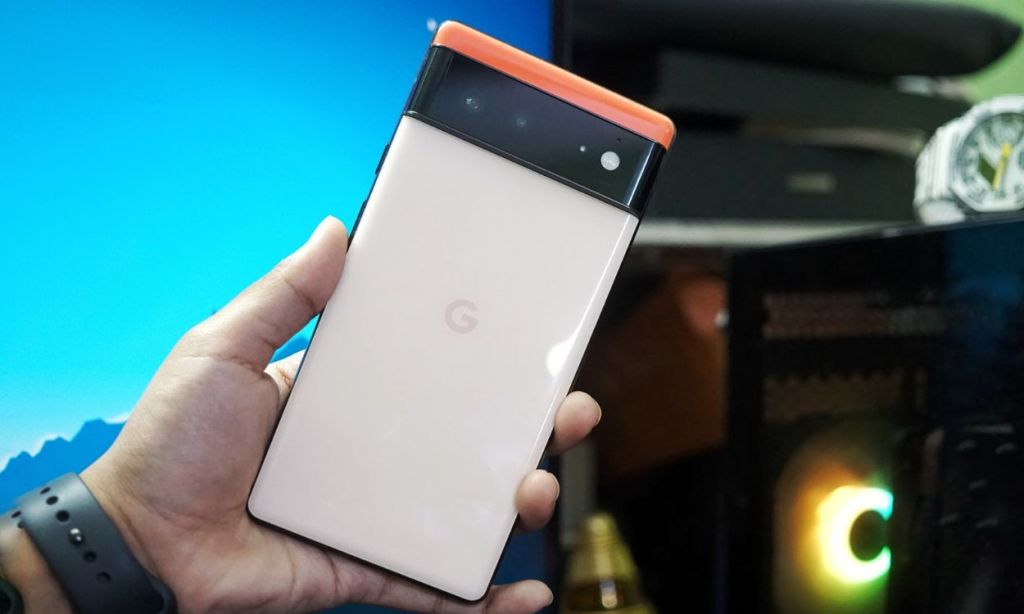
Unless you’ve been inside a smartphone before, we wouldn’t recommend replacing a battery yourself. Batteries, especially when swollen, are a fire hazard. So, it’s always recommended to go to a professional to get your phone fixed. However, if you’re curious about replacing parts yourself, iFixit should be your one-stop destination for parts and comprehensive repair guides.
With repairability taking a back seat these days, we cannot rewind the situation back to the swappable battery era. But I’d love it if things at least remain the way they are right now. Of course, any efforts to improve the overall repairability would be great. Fairphone and Framework are good examples.
And that’s how I replaced by Pixel 6 battery. It’s now easily good for the next two years. So I’ll be tinkering with custom ROMs once the official support ends after Android 15.
What are your thoughts on smartphone repairability as a whole? Do you think manufacturers should make their phones more repairable? Let us know in the comments below.
